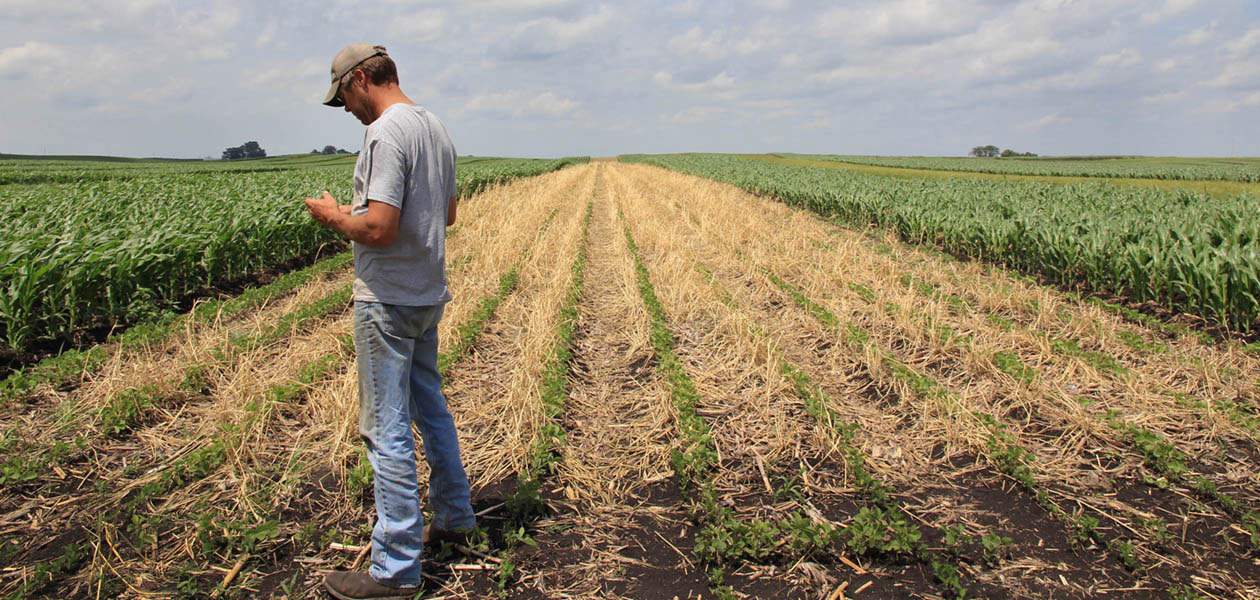 Crop diversity around the world is declining, presenting a challenge for both the environment and food security. This is the result of new study from the University of Toronto Scarborough, published in the journal PLOS ONE on February 6.
Crop diversity around the world is declining, presenting a challenge for both the environment and food security. This is the result of new study from the University of Toronto Scarborough, published in the journal PLOS ONE on February 6. “What we found is that a very small number of crops, in particular wheat, rice, soybean and corn, are starting to dominate agricultural lands globally and within all different regions of the world,” said lead author Adam Martin, who is an ecologist and assistant professor in the Department of Physical and Environmental Sciences. The research team looked at what types of crops are being grown on large-scale industrial farms worldwide and examined how this has changed over the past 50 years. They used crop production data on the area harvested from the UN’s Food and Agricultural Organization (FAO) from 1961–2014, which is reported for 161 plant-based commodity groups.
At a global scale, the researchers found little change in crop diversity from 1961 through to the late 1970s. In the 1980s, there was a massive increase in global crop diversity as different types of crops were being grown in new places on an industrial scale for the first time. This period was then followed by a “levelling-off” of crop diversification beginning in the early 1990s. Crop diversity has increased on a regional scale since the early 1960s. In North America for example, 93 different crops are now grown compared to 80 back in the 1960s.
The problem, Martin says, is that on a global scale more of the same kinds of crops is being grown on much larger scales. Currently, just four crops – soybeans, wheat, rice and corn – are grown on almost half the world’s agricultural lands, while the remaining 152 crops cover the rest. “Ironically, the world is growing a more diverse array of crops than ever before, but at the same time, this very small number of commercially important crops are becoming much more dominant in all different regions of the world. So big farms in Asia or Africa or the Americas are actually starting to look much more similar to one another,” Martin explained.
The lack of genetic diversity within individual crops is also pretty obvious, said Martin. For example, in North America, six individual genotypes comprise about 50% of all corn crops planted. “So large industrial farms are often growing one crop species, which are usually just a single genotype, across thousands of hectares of land.” According to the study, the decline in global crop diversity presents a challenge for a number of reasons. First, it affects regional food sovereignty. “If regional crop diversity is threatened, it really cuts into people’s ability to eat or afford food that is culturally significant to them,” says Martin.
But there is also an ecological issue if there’s increasing dominance by a few genetic lineages of crops, because the global agricultural system becomes increasingly susceptible to pests or diseases. This could affects yields. “Think potato famine, but on a global scale,” Martin said. He also pointed to a deadly fungus that continues to devastate banana plantations around the world. The researchers highlight that there’s a policy angle to consider, since government decisions that favor growing certain kinds of crops may contribute to a lack of diversity. It will be important to look at what governments are doing to promote more different types of crops being grown or whether, at a policy-level, they are favoring farms to grow certain types of cash crops.
The authors stress that their analyses can play an important role in setting and measuring global priorities for agricultural sustainability and diversity. They remind that crop diversity also plays an important role in the Sustainable Development Goals (SDGs), adopted by the United Nations in 2015. Target 2.5 of SDG 2 calls for the conservation of a “...genetic diversity of seeds, (and) cultivated plants…”, while Target 2.4 calls for “…resilient agricultural practices…” that confer a multitude of ecosystem services beyond yield alone.
According to the study, “diversified agroecosystems that incorporate multiple crop species are key in meeting this target”. However, the authors criticize that political support for such systems remain limited. “Our analyses suggests that at regional scales, diversified polyculture assemblages would also be critical in addressing both the trend towards, and consequences of, increasing homogenization in agricultural systems globally.”










No comments:
Post a Comment